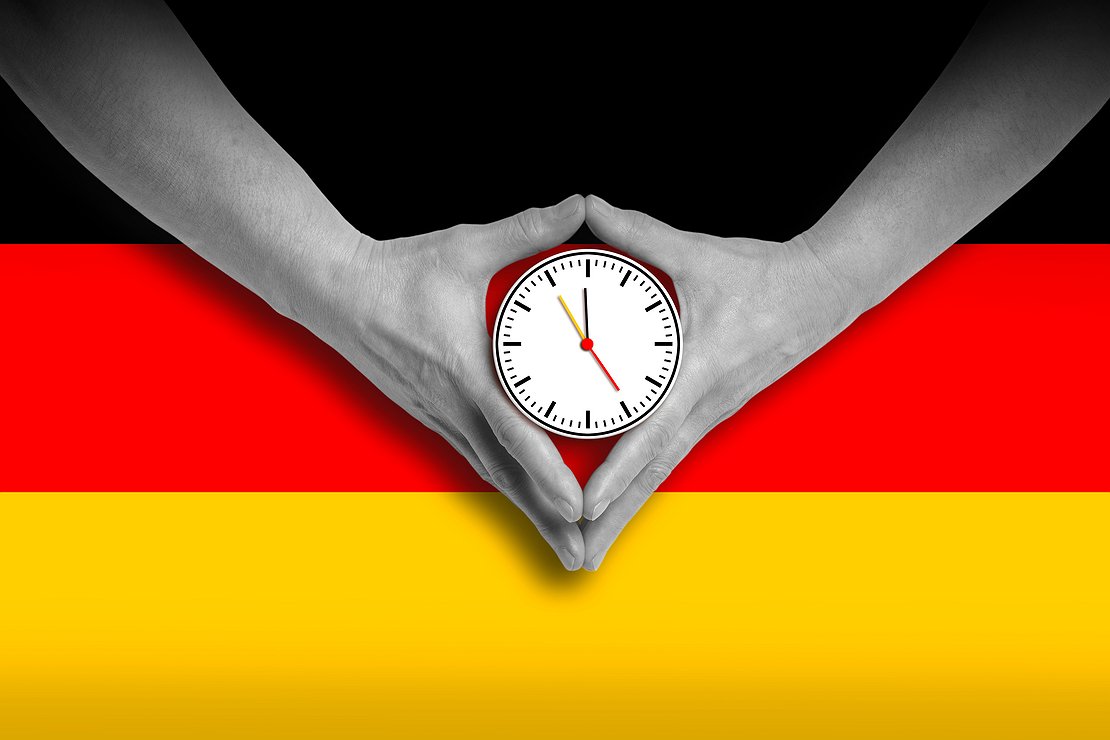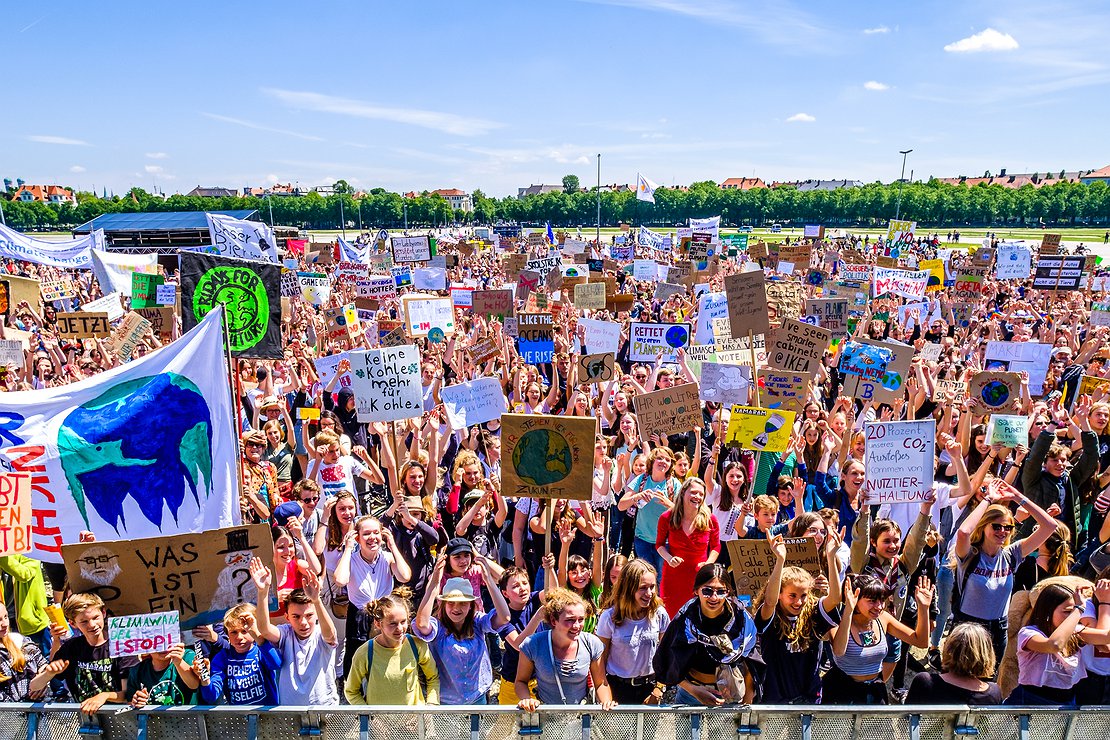
On Angela Merkel and her style of politics:History is Returning
As tenacious readers know, for years I have been working my fingers to the bone, sporadically and excessively, but regularly, on the question of what may be motivating Angela Merkel on her stubborn march into probably the last German “Sonderweg”, or separate path. Speculations are rampant on the internet about the motives of this unfortunate person, whom her followers now only defend with eschatological arguments; many non-believers, however, see her as an executor of internationalist policies and globalist agendas; others, including myself, search for the key to her motives in how her youth was shaped: through a perverse combination of protestantism and socialism and a resulting deep contempt for cultural traditions, national idiosyncrasies, freedom for the individual as well as for the market, not to mention Merkel's contempt for anything German in general and the German language in particular today.
In December 2015 I quoted a long-time member of the Bundestag of the CDU/CSU who said that Merkel's political style was “pure rodeo” and knew only one motive: to stay on top. This is also the view of journalist Ferdinand Knauss, who occupies the precarious position of government critic in the weekly journal ‘Wirtschaftswoche.’ In his book “Merkel am Ende. Warum die Methode Angela Merkels nicht mehr in unsere Zeit passt” (The End of Merkel. Why Angela Merkel’s method no longer suits our time), he supplies a compelling analysis of the at the same time highly gripping and infinitely boring phenomenon Angela I. According to Knauss, the Chancellor is “an apolitical person,” a pure manager who, for reasons of habit, clings to her job and is fortunate not to have to stand up for her record in the business world: “Not although, but rather because she is apolitical, Merkel was the right Chancellor for a society that believed itself to be at the end of history. For a society that considered the political, that is, the answering of fundamental questions – in other words, making history – obsolete.” What happens inside this woman may therefore be “not so interesting at all,” one is dealing with an intellectually rather banal person who does not think in terms of content but only tactically. For this reason, she carefully avoids statements that would suggest her shortcomings and avoids any question that points to a concrete political attitude.
The Chancellor, writes the ‘Wirtschaftswoche’ author, hardly fulfils any of the conditions that Max Weber sets out in his famous essay ‘Politics as a Vocation’: “She has no charisma and cannot speak well. She has no objective passion and no sense of responsibility. At best one could attest to her sense of proportion – but after September 2015 one must also doubt this very much. What she possesses to the highest degree, however, is a gift for analysing the conditions for acquiring and retaining power.”
There are strong arguments for this point of view, which Knauss also lists in his calm and intelligent analysis. In the course of her 13-year term in office, the Chancellor changed her views like her trouser suits. She first spoke out in favour of the “bridge technology” of nuclear power and an extension of nuclear power plant operating lives, but then in a surprise move dropped nuclear energy; she declared multiculturalism a failure and put it on record in 2003: “If we look at the effects of immigration into Germany over the last 50 or 40 years, the balance, if we add welfare and everything else, is negative for Germany”; twelve years later, with a lurch, she imported almost two million mosaic pieces for a multicultural country that is colorfully emerging on the time horizon and financed by welfare funds; as opposition leader, she called for classical liberal reforms, but under her leadership as Chancellor, tax revenues rose, redistribution flourished and welfare spending exploded. In 2003 Merkel described her “nightmare Germany” with the words: “Everyone owns a wind turbine and still believes he is doing something for the environment, but forgets about the generous subsidies.” Eight years later she announced the ‘energy turnaround’, financed with a subsidizing redistribution mechanism called the EEG levy (which, according to Merkel's assertion of June 2011, “will not rise above its current level”; at that time it was 3.5 cents per kilowatt hour, in 2018 it was 6.8 cents).
Is such a person acting in pursuit of any defined political goal? “In 28 years as a politician, minister, CDU leader and finally Chancellor, Merkel has hardly ever consistently, and with personal risk, defended any principle or political goal that she initially supported. She has given them all up,” notes Knauss, and wonders in the following: “And now she, of all people, is supposed to become the West’s last woman standing?”
The long reign of Merkel and her apolitical method must therefore be serving wishes and illusions that are present in large parts of this strange people. The slogan of the "end of history" has already been mentioned; in no other country on earth is this idea more widespread than among the ‘world huggers’ with a wish to disappear, in the heart of Europe. The “cosmopolitan illusion” (Knauss) as identity prosthesis is in any case something very German; it originated at a time when a politically united Germany was unthinkable, and after the double collapse of the Reich it filled for most politicians and intellectuals the void of national belonging. Their maxim was, and is, never to have to act on one's own responsibility again. It is a cosmopolitanism that is not based on inner stability and a solid understanding of oneself, but expresses an affective will to self-denial and reparation. The Green mentality is based on this phenomenon, from which it sucks its moral blackmail capital. Merkel has realized that if she wants to stay on top, she must adapt to the ideas of the Greens and the intellectual loudspeakers, most of whom support them, and that is why she has morally charged all her politics.
“The left drift of the CDU took place in the decisive field of cultural attitudes and values, i.e. where the categories of good and evil are negotiated,” writes Knauss. The CDU has “sold its soul to remain in government.”
The Greens, and the majority of journalists and public relations workers who support them, can be blamed for the distinction between right and wrong being transformed into a distinction between good and evil also in the field of politics. This reformatting of political decisions into moral ones has meant that the “first chancellor of the Greens” (according to Bernd Ulrich, deputy editor-in-chief of ‘Die Zeit,’ quite admiringly) became more and more isolated internationally, but secured her rule in her own country, that planetary weather niche of political romanticism, where any deeper criticism of her decisions could be rejected as immoral. The currently sole opposition party, the AfD – “a direct result of Merkel's government and its legacy” (Knauss) – could thus be stigmatized as an outpost of the devil himself, for whose emergence there were no rational reasons and whose arguments one did not even have to listen to.
But that will not go well for much longer, says Knauss. On the one hand, one can’t “in the long run treat a party that achieves 15 percent, in Saxony perhaps soon 30 percent, as the Evil One”, otherwise the country will “become ungovernable in the medium term.” On the other hand, a policy of permanent overstretching of one's own economic and mental forces inevitably leads to crises, unrest and distribution battles. It goes without saying that Knauss is irritated by the fact that, as well as the majority of the elites, not the majority, but at least a significant proportion of the voters applaud this squandering of national assets. However, people versed in history know that this rampaging adherence to a course once taken is by no means a first for idealistic Germans. Mephistopheles speaks wisely: “In the end we depend on the creatures we have made;” by re-electing the ‘leader of the foreigners,’ the Germans have signaled to foreign countries that this statement applies vice versa to both sides, leader and people, "icon of the West" (Ulf Poschardt) and congregation, those who have been governing here for a long time and those who have been living here for a long time.
As is well known, this Germany once stood in shimmering armor against a world of enemies until they showed it the limits of its powers. “Today, many Germans and the Chancellor herself seem to believe that Germany of all places, if necessary without the USA and a large part of the EU – not to mention the power-conscious states Russia, China, Turkey, Iran and so on – is called upon to defend the end of history: to represent, as a selfless anti-national state, a higher European or even global interest. This hubris, too, will not go unpunished. Merkel as the “incarnation of a strange, post-German megalomania” overestimates “in an irresponsible way the possibilities of her own country, which is to dissipate in Europe and the world and simultaneously save Europe and the world.” Henry Kissinger must have meant something like this when he said: “Angela Merkel is very local.”
In view of the global tendencies that are by no means aimed at democratization and world unification – the re-Islamization of the Arab world and Turkey, the rise of China, the demographic decline of the West, the swelling migration movement from Africa and West Asia into the Western region of prosperity – the inhabitants of the West can see and above all feel threats that can no longer be managed by tabooing, paying protection money, offering dialogue and passing the direct consequences on to the lower classes. There will again be conflicts that cannot be resolved without violence. There will again be enmities. “And with that,” says Knauss, “the preconditions for the Merkel method are dwindling.”
Knauss: “If history is returning and with it the demand for the political, i.e. for politicians who, even against strong resistance, champion the fundamental interests of those who they represent, Merkel does not have much to offer.” And history is coming back, first of all in the form of fundamental questions, the answers to which maybe the Chancellor herself, but none of her successors, will be able to evade, questions such as: Do we want further immigration? If so, how much and which immigrants do we want? Is Islam a part of Germany? Should the European Monetary Union be maintained at all costs? Must German taxpayers therefore assume even more liability for European banking and social systems? Is the expansion of wind energy necessary or is it destroying the countryside in an intolerable way? “Merkel has never given a clear answer to any of these questions.” Under this Chancellor, says Knauss with a nice image, “Leviathan has become a dairy cow.” But Behemoth's powers are gathering all over the world. States and heads of state will have to react. The apparent self-evident assumptions of the past age, concerning prosperity as well as internal and external security, have fallen by the wayside. “Fear as the source of political passion has returned, and with it the need for protection.” The conflict between the trend toward a world society and the need to protect one's own cannot be resolved. But it could be civilized and democratically led and defused by pragmatic compromises: “That will be the great task of democratic politics in the years to come.”
Knauss thus conveys a message that is essentially optimistic: not only has Merkel's time run out, but her kind of politics, the Merkel system, is also coming to an end. Germany, in contrast to Merkel's non-existent natural descendants, will bear her legacy of damage for a long time; it is probably irreversible, and in the final analysis it is the fault of German efficiency, German obedience to authority and German escapism. The tab will be presented to Merkel's successor. And an irony of history could be that one day a (co-) ruling AfD will be held responsible for the consequences of Merkel's political idiocies.
Translated from eigentümlich frei, where the original article was published on February 4th 2019.




